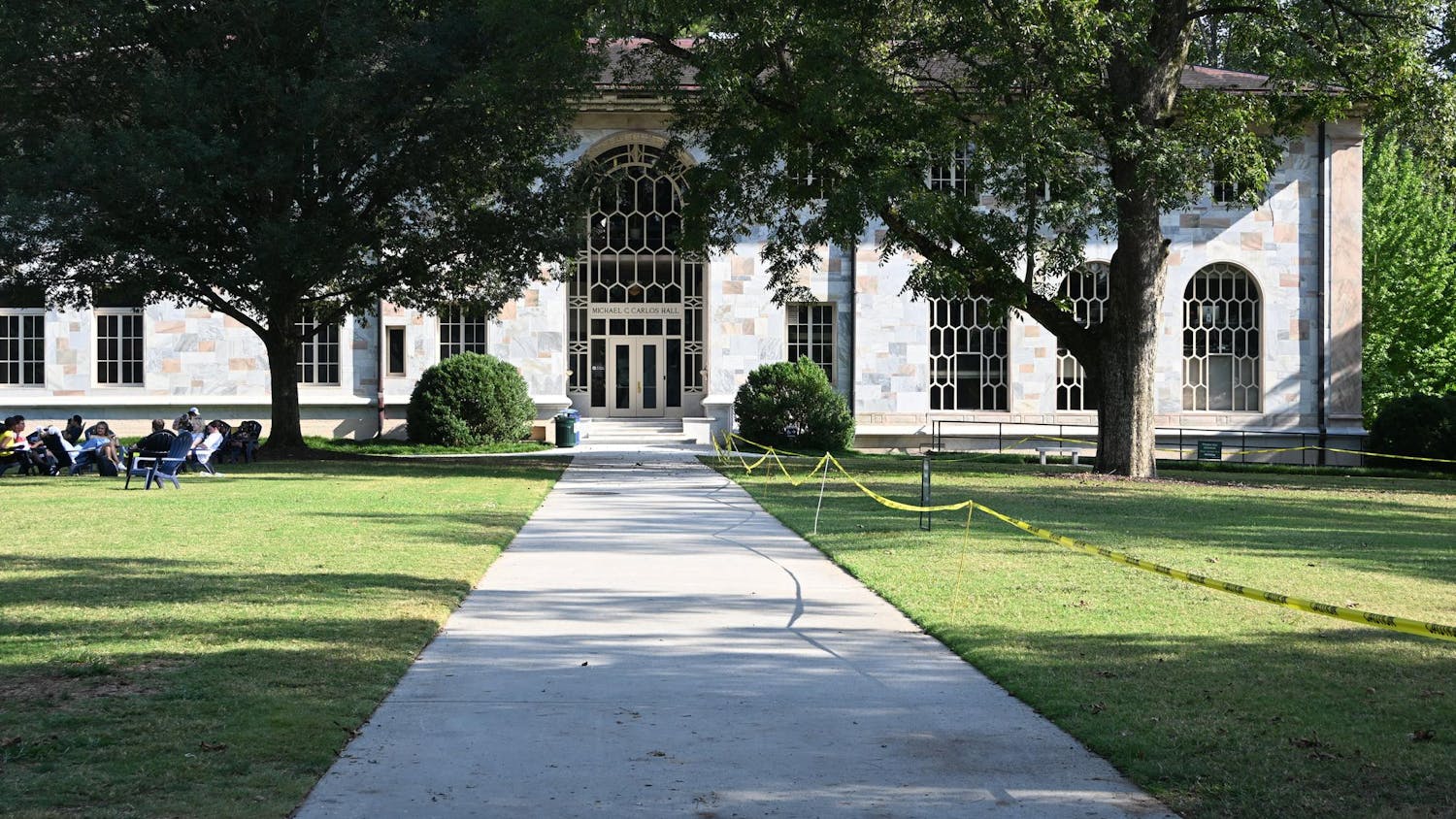Emory University is replacing its asymptomatic COVID-19 screening program with new 24-hour Test-and-Go kiosks. The last day to receive an asymptomatic screening is Dec. 20 on the Oxford campus and Dec. 21 on the Atlanta campus.
The asymptomatic screening program has operated for 2 1/2 years since the onset of the virus in July 2020.
The University partnered with DeKalb County to set up three free to use Test-and-Go vending kiosks, which can each hold up to 700 COVID-19 tests. The kiosks will be located near the CVS in Emory Point, on Oxford Road in front of the Barnes & Noble @ Emory and in Oxford’s Whatcoat Street Building.
The kiosks will be open to the public, including people unaffiliated with Emory, and will not require insurance to receive a test.
“Test-and-Go kiosks are managed and operated by LTS, a national provider of COVID-19 testing platforms, which has already partnered with the Georgia Department of Public Health to provide similar kiosks around the state,” Chief Resilience Officer Amir St. Clair wrote in an email to the Wheel.

The specimens are collected daily, and results are typically available within 24 to 48 hours.
“Testing specimens from kiosks at Emory's campuses will follow similar procedures already in place and be sent to Radeas Lab in North Carolina for analysis and result[s],” St. Clair said.
Under the current asymptomatic screening program, Emory community members go to the Emory Student Center in Atlanta or Murdy Hall at Oxford, where they can show their EmoryCard to generate a QR pickup code. They then complete the test independently before returning the kit to a designated drop-off location from 9 a.m.to 3 p.m on Monday through Wednesday.
Emory students with COVID-19 symptoms can also participate in the National Institute of Health’s Rapid Acceleration of Diagnostics (RADx) program, which partnered with Emory, The Georgia Institute of Technology, and Children’s Healthcare of Atlanta to “evaluate and help bring more Covid tests to market.” Students can schedule an appointment to get free PCR testing and submit their results for the study to earn a $50 electronic gift card. The testing location is in Executive Park.
“Testing through RADx is administered by trained nurses or research staff members to symptomatic individuals only, and data collected goes to support research efforts to further improve COVID-19 testing,” St. Clair wrote.
Luis Ciriaco (25C), who is a sophomore advisor at the residence hall The Complex, said he supports the University’s switch to the kiosks.
“The health and well-being of my residents is a top priority, and this will allow them to keep track of their health and let them acquire an at-home test kit faster,” Ciriaco said.
For Ciriaco, greater access to COVID-19 screening is personal. He recalled that a resident once asked him where they could get tested for COVID-19, but the asymptomatic screening program was closed at the time. The next closest testing site was Student Health Services located at 1525 Clifton Road. The resident “seemed anxious and exhausted thinking of the walk,” according to Ciriaco.
“Having kiosks and vending machines giving COVID-19 at-home test kits will not only provide an accessible way to acquire them but also limit one-on-one contact with people who hand you the tests, which can decrease the cases of COVID-19,” Ciriaco said. “In the end, it’s a win-win.”







